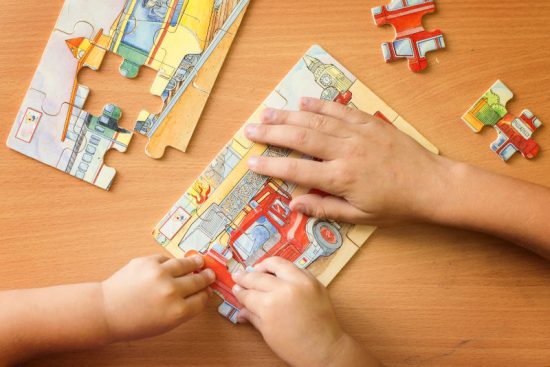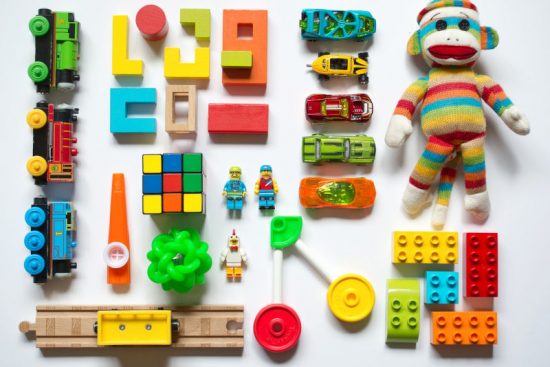
Caring for a medically fragile infant is an emotional journey that can feel overwhelming and isolating. The stress of medical challenges, uncertainty, and constant vigilance can quickly overshadow the joy of welcoming a new life.
Parents and caregivers often find themselves dealing with a whirlwind of emotions, fear, guilt, hope, and exhaustion. This article explores practical strategies and coping mechanisms to help you manage the unique challenges of parenting a medically fragile infant.
Whether you’re seeking ways to balance self-care, build resilience, or connect with others who understand what you’re going through, this article offers valuable insights. It also provides tips to help you find strength amidst the struggles. Remember, you’re not alone in this journey, and there is hope even in the hardest moments.
Understanding the Reality of Having a Medically Fragile Infant
Medically fragile refers to infants with serious health conditions that require constant medical supervision and care. These little ones might depend on breathing machines, feeding tubes, or frequent hospital stays to survive. It’s a term that goes far beyond just a diagnosis.
For many families, the journey of realizing their child is medically fragile starts in the NICU. Premature birth, low birth weight, or unexpected complications can take families by surprise. What should be a joyous moment may quickly become one filled with fear and uncertainty. Parents and caregivers are often thrust into a world of unfamiliar medical terms, decisions under pressure, and heartbreaking realizations.
One of the most harrowing experiences a parent can face is seeing their infant battle a severe illness like necrotizing enterocolitis (NEC). As per TorHoerman Law, this dangerous gastrointestinal condition mostly affects premature and low birth weight babies. NEC can cause inflammation, infection, and even the death of intestinal tissue. It is life-threatening and often requires emergency surgery or intensive medical intervention.
In recent years, numerous parents have filed lawsuits against major infant formula manufacturers. They claim that certain cow’s milk-based formulas significantly increase the risk of NEC in vulnerable infants. The NEC lawsuit argues that these companies failed to adequately warn parents and medical professionals about the potential dangers of their products.
As a caregiver of such a medically fragile child, it’s crucial to stay informed. It is not only about your baby’s health. It is also about any environmental or nutritional risks that might affect their already delicate systems.
Emotional Survival Tips for Parents of Medically Fragile Infants
Parenting a medically fragile infant is a journey defined by uncertainty, vigilance, and extraordinary strength. As STAT highlights, families of children with complex medical needs face an overwhelming reality once they leave the hospital.
The discharge may come with oxygen tanks, feeding tubes, and medication schedules. This also brings a heavy, often isolating responsibility. Parents must become case managers, emergency responders, and advocates, all while dealing with an underprepared support system.
Caring for a medically complex child comes with heavy demands. These demands often lead to significant financial, psychological, and social stress. Let us explore practical survival tips tailored for parents facing these unique circumstances.
Building a Strong Support Network
Parenting a medically fragile infant can quickly lead to feelings of isolation. Your daily routine often revolves around doctors, medications, and critical care tasks. In such situations, a supportive circle of family and friends becomes invaluable.
Family can be an immense source of comfort. Whether it’s caring for your other children for a few hours or preparing meals, these gestures of love make a difference.
Research consistently affirms the value of this kind of support. A study published in Frontiers explored how social support impacts mental health, focusing on positive emotions, anxiety, and depression. It also examined whether perceived stress plays a mediating role in this relationship.
The findings revealed that social support has mental health benefits, especially when it comes from family and significant others. These benefits are partly due to their ability to reduce perceived stress. In other words, support from these sources lessens stress, which in turn enhances mental health outcomes. Simply put, when you feel supported, your stress lessens, making room for healing and resilience.
Balancing Emotional Strength with Physical Exhaustion
There’s no denying it. Caregiving in this context can be incredibly draining. So, how do you cope with exhaustion when rest feels elusive?
Start by acknowledging that physical fatigue is not a sign of weakness. It’s a clear signal that your body needs attention, too. Even the smallest acts of self-care can make a noticeable difference. Stretch for 10 minutes. Sip water throughout the day. Allow yourself a micro-nap while someone you trust watches over your baby. These brief moments can help restore your reserves.
Another powerful coping tool is routine. While life with a medically complex child may feel unpredictable, creating a flexible structure can reduce stress.
 In fact, a lack of structure can heighten feelings of distress and make it harder to focus on finding solutions. Verywell Mind explains that when people lack structure and have less to focus on, they may start to ruminate on their stress. This can, in turn, lead to increased stress and anxiety. Establishing predictability creates a sense of calm for both you and your baby.
In fact, a lack of structure can heighten feelings of distress and make it harder to focus on finding solutions. Verywell Mind explains that when people lack structure and have less to focus on, they may start to ruminate on their stress. This can, in turn, lead to increased stress and anxiety. Establishing predictability creates a sense of calm for both you and your baby.
Finding Comfort in Support Groups
One of the most healing things you can hear during this journey is “Me too.” Support groups, whether in person or online, offer a sense of community. They connect parents and caregivers who truly understand what you’re going through.
They would have experienced the challenges of NICU hallways, juggled feeding pumps, and dealt with emergency room visits. People in support groups also know the language of beeping monitors and silent prayers.
Joining a support group helps counter the loneliness that often accompanies this type of parenting. It’s a space where your worries are acknowledged and where discussions about feeding tubes or seizure protocols are the norm. Your child’s medical complexity isn’t seen as too much for others to handle.
Scientific research backs up their value. According to a study by the NIH, social support, especially emotional and positive interactions, provides strong protection against depression. The broader and more diverse your support network, the lower your risk for mental health struggles.
In other words, the simple act of connecting with others who understand can be powerfully protective. Moreover, you’ll find valuable tips, shared experiences, and sometimes even lifelong friendships.
FAQs
What is caregiver therapy?
Caregiver therapy, or care counseling, supports those looking after others. It provides emotional support, coping tools, and guidance. It is offered by non-profits, corporate wellness programs, and specialized therapists. This therapy helps caregivers manage stress, avoid burnout, and balance caregiving with their own mental health.
What is the hardest part of caregiving?
The hardest part of caregiving is often emotional exhaustion. Caregivers juggle daily responsibilities, medical tasks, and personal life, which can lead to burnout, stress, and feelings of isolation. Without proper support or breaks, the emotional toll can feel overwhelming and difficult to manage.
What are some self-care ideas?
Self-care can include journaling, meditating, walking outdoors, deep breathing, or reading a favorite book. You can also treat yourself to a small gift, take a mental health day, or spend time in nature. The goal is to recharge both emotionally and physically in simple ways.
In the midst of caring for a medically fragile infant, it’s vital to recognize the importance of your own emotional well-being. It is equally as crucial as the health of your child. This journey, while fraught with challenges, can also foster profound resilience and connection.
By seeking support, establishing routines, and prioritizing self-care, you empower yourself. In doing so, you also create a nurturing environment for your child to thrive.




